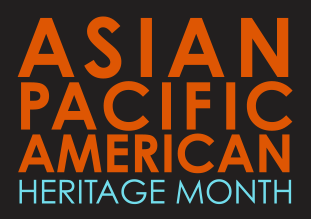Many Asian Americans can find it difficult to talk about their mental states (see Washington Post’s article For many Asian Americans, depression is an unfamiliar word). Mitski Miyawaki, self-described “half Japanese, half American but not fully either”, sings about depression, loneliness, love, and other forms of melancholy in her fourth studio album Puberty 2. At 26 years old, her work reflects that of a young woman still in the throes of uncertainty. Her voice captures the pain, however subdued it may seem, that adulthood depression can bring. Her singing can get to an almost shout where her volume seems to cover up the theme of loneliness that pervades throughout her album.
The opener to the album (“Happy”) starts off with a glitchy drone, her modulated voice coming in before the song erupts into a dream-like collision of fuzzy vocals and distorted guitar. She weaves into her music a blanket-like warmth that partially covers the bleakness and solitude she describes throughout her lyrics. It sounds spacious, as if informally recorded in a nostalgic basement. Her song structures draw a lot of influence incorporating influences from emo, noise rock, and folk. While she seems to incorporate a lot of external influences, at the album’s core is Mitski’s own voice. It varies from almost dazed and dreamy to raw and yelping, showing the extremes of her emotional state.
In “Your Best American Girl”, Mitski sings of the conflict between her own heritage and her lover’s, proclaiming him as an “All-American Boy”. Her guitar style recalls the balladry of popular mid-2000 sensitive white male singer-songwriters before transforming into a crash of reverbed guitar. As an Asian American woman, her position as an indie musician seems distinct when compared to the whiteness of indie music (for a great discussion on this, read Pitchfork’s The Unbearable Whiteness of Indie (2015)). When she sings “Your mother wouldn’t approve of how my mother raised me”, her voice shifts from resignation to acceptance as she goes on to sing “But I do, I finally do.” Her identity as an Asian American woman but especially her mixed background give her musicianship much of its shape. Her transience as a child due to her father’s job, while keeping her and her mother in Japan for much of her early childhood, led to a lot of the disconnect she feels in her identity.
“My Body’s Made of Crushed Little Stars” draws upon her quarter-life frustrations for a rapid Neutral Milk Hotel-esque catharsis, the frantic strums of her guitar overlaid with her distorted yelps of “Kill me, Jerusalem”. Her self-image is constructed and deconstructed in the album’s 42 minute length. Her images of depression can resound with young adults who seem to lack direction within their lives. Being an Asian American musician in this still-white scene can be difficult and the issues she talks about are often not discussed with the same perspective or candor she provides in the album. Her frankness accompanies the listener throughout the album that both acts and provides as a confessional for the listener and for Mitski herself. Accepting ourselves, flaws and all, can be difficult, especially for Asian Americans dealing with depression and anxiety. Mitski lets us know we’re not alone.




